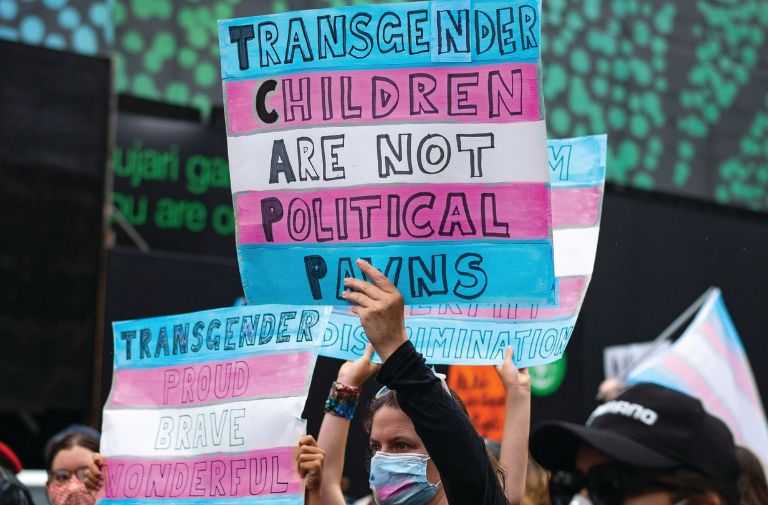The prime minister of the United Kingdom is moving to ban conversion therapy, a Canadian province uses override for pronoun legislation, and a top court in India declines to recognize same-sex marriage.
PM Includes Draft Bill Banning Conversion Practices
Rishi Sunak, the Prime Minister of the United Kingdom, announced that he will proceed with plans to ban gay and trans conversion practices.
According to The Guardian, campaigners feared the government waited too long to include the bill in the next package of legislation, Sunak’s announcement came just in time.
The issue will potentially split the party, as some MPs believe the ban will criminalize parents and teachers who give advice to children on gender identity.
The chair of the Commons Women and Equalities Select Committee, Caroline Nokes, said the announcement was “excellent news.”
“Conversion therapy is abhorrent, and we must move to stop people suffering from horrendous practices which simply cannot ever be described as therapy,” Nokes told The Guardian.
Province Uses Override For Pronoun Legislation
Photo via Unsplash.
Saskatchewan, a province in Canada, is invoking a rare constitutional tool to protect Bill 137, the controversial gender pronoun legislation, from legal challenges.
Scott Moe, the premier of Saskatchewan and leader of the Saskatchewan party, has invoked the “notwithstanding clause” which allows governments to temporarily strip away fundamental rights enshrined in the country’s Charter of Rights and Freedoms, says The Guardian.
He is the first provincial leader to use the clause.
“The government of Saskatchewan is threatening to shred a piece of the charter, and in so doing violate the rights, the freedom, the privacy, the equality and the safety of trans young people,” said Noa Mendelsohn Aviv, an executive director for the Canadian Civil Liberties Association.
Top Court Declines To Legally Recognize Same-Sex Marriage
Photo via Adobe Stock.
The top court in India has declined to grant legal recognition to same-sex marriages.
According to The Guardian, the court said recognition is “beyond its scope” and should, instead, be decided by parliament. However, they noted that queer relationships should not be discriminated against by the state.
“Today, the court has reaffirmed that queer citizens will be relegated to an unsympathetic legislature and an apathetic executive. We are second-class citizens, no matter how many judicial platitudes say otherwise. We will rise in rage and protest,” said Rohin Bhatt, one of the lawyers in the case.
The ban on homosexuality in India was lifted in 2018 by the Supreme Court, and social acceptance for the LGBTQ+ community is growing. However, the state is still widely conservative and instances of discrimination and harassment continue.
“… What we got today was a deeply divided judgment that was unclear about what the law could offer as relief to the challenges of our unequal and diverse queer lives,” said petitioner Ankita Khanna. “Having said that, the queer community will continue to move forward in solidarity and with resilience, as we always have.”





